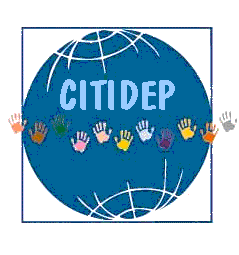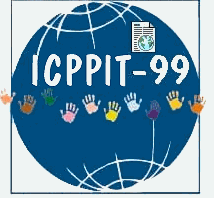CITIDEP
Research Center
on
Information Technologyand
Participatory DemocracyCITIDEP
is a private, non-profit, multi-national research institution, whose primary objective is to study participatory democracy, in particular through the research, development and demonstration of new information technologies, of its impacts, and of ethical, social, political and planning frameworks that enable participatory mechanisms in the information society.
R. Tristão Vaz, 10 - 5º E, 1400 Lisboa, Portugal
citidep@earthlink.net • http://www.citidep.pt/
CITIDEP
has its headquarters in Lisbon, Portugal, European Union, but it is open to researchers from any country in the world, through national chapters and multi-national research clusters.CITIDEP
was created in September 1996 and has currently about 80 affiliates in 9 countries, with 3 organized chapters (Portugal, Mexico and USA) and others soon to be (France). Chapters are autonomous, sharing common by-laws, mission and research goals.CITIDEP
has a particular aptitude for applied research, based on national and multinational, multidisciplinary teams. We face the challenge of combining research on technology and engineering with research on social sciences and humanities, keeping a focus on participatory democracy and information technologies; and the no lesser challenge of linking such research to concrete measures in support of the civil society.Reflecting our profile as a Research Center, among our membership we count 18 Ph.D.'s, 11 Ph.D. candidates, 20 holding a Master, and 4 Master degree candidates. About 70% of our membership is actively engaged in research, including as post-grads or faculty members of:
Univ. de Lisboa, Univ. Nova de Lisboa, Univ. do Algarve, Univ. de Coimbra, I.P. de Viana do Castelo, Univ. Lusófona, Univ. Estadual de Londrina - Brasil, Univ. de S. Paulo, Université de Paris, London School of Economics, MIT - Massachusetts Institute of Technology, Harvard U., Univ. of Massachusetts, Univ. of California, Ohio U., Univ. of Illinois, Univ. of Colorado, Univ. Autonoma del Estado de Mexico, Univ. de Guanajuato - Mexico, Colegio Mexiquense.
Reflecting also our commitment to link research to praxis in society, many CITIDEP members are professionals with responsibilities in both the private and public sectors; some of them are leading activists of major Non-Governmental Organizations.
Our associates have a rich and diverse background, including: Political Science, Planning, Economy, Business, Management, Communications, Computer Science, Electronic Engineering, Mathematics, Medicine, Environmental Engineering, Biology, Social Service, Sociology, Anthropology, Psychology, Philosophy, Pedagogy, Literature, among others.
